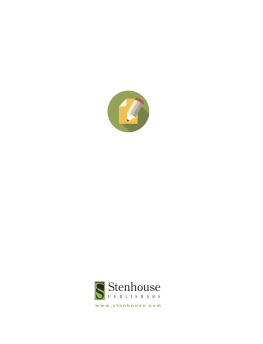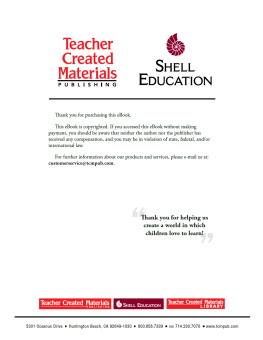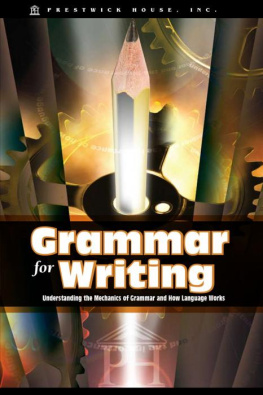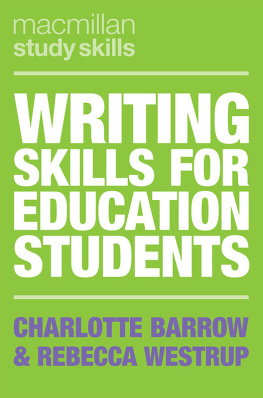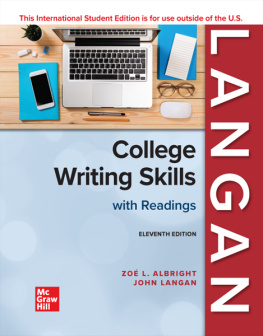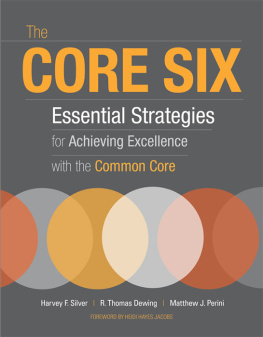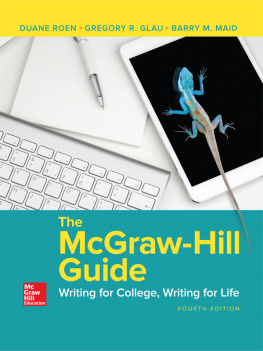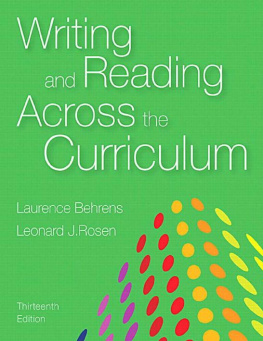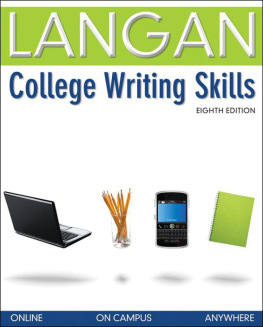Contents
Landmarks
List of Figures
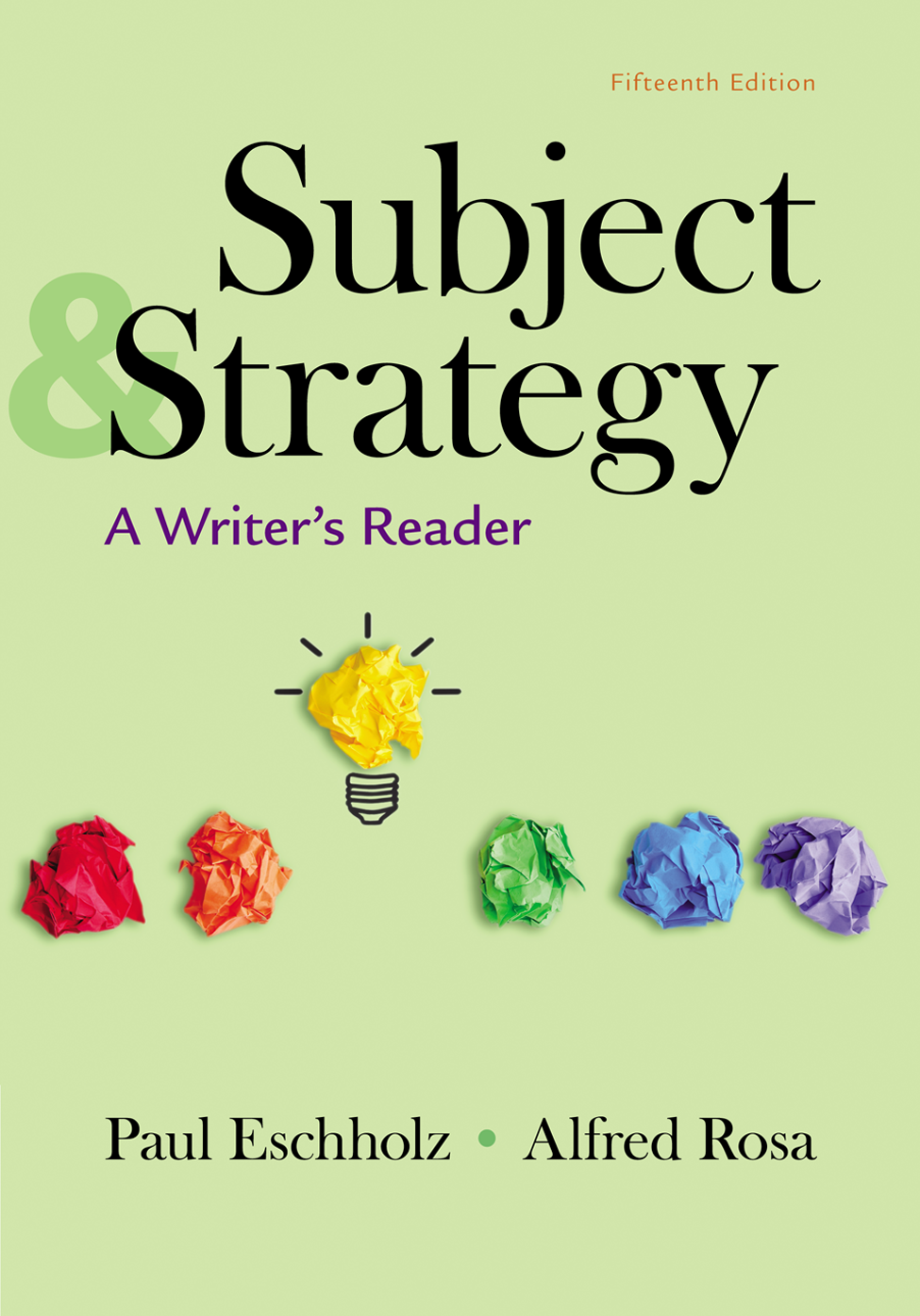
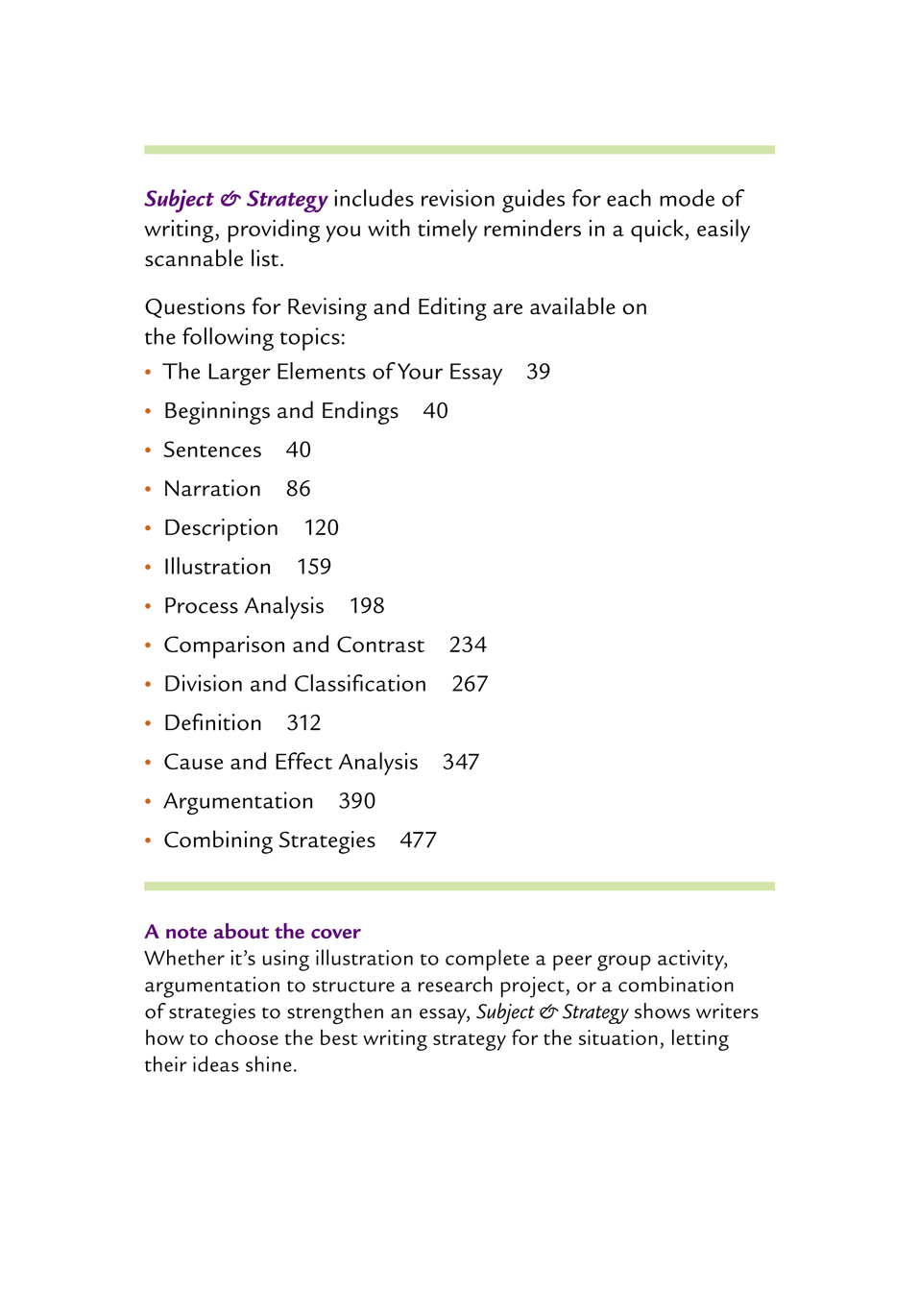
Subject & Strategy includes revision guides for each mode of writing, providing you with timely reminders in a quick, easily scannable list.
Questions for Revising and Editing are available on the following topics:
The Larger Elements of Your Essay 39
Beginnings and Endings 40
Sentences 40
Narration 86
Description 120
Illustration 159
Process Analysis 198
Comparison and Contrast 234
Division and Classification 267
Definition 312
Cause and Effect Analysis 347
Argumentation 390
Combining Strategies 477
A note about the cover
Whether its using illustration to complete a peer group activity, argumentation to structure a research project, or a combination of strategies to strengthen an essay, Subject & Strategy shows writers how to choose the best writing strategy for the situation, letting their ideas shine.
SUBJECT & STRATEGY
A WRITERS READER
FIFTEENTH EDITION
SUBJECT & STRATEGY
A WRITERS READER
- PAUL ESCHHOLZ
- University of Vermont
- ALFRED ROSA
- University of Vermont

For Bedford/St. Martins
Vice President, Editorial, Macmillan Learning Humanities: Edwin Hill
Executive Program Director for English: Leasa Burton
Senior Program Manager for Readers and Literature: John E. Sullivan III
Executive Marketing Manager: Joy Fisher Williams
Director of Content Development: Jane Knetzger
Developmental Editor: Leah Rang
Editorial Assistant: Cari Goldfine
Content Project Manager: Pamela Lawson
Senior Workflow Project Manager: Lisa McDowell
Production Supervisor: Robert Cherry
Media Project Manager: Allison Hart
Manager of Publishing Services: Andrea Cava
Editorial Services: Lumina Datamatics, Inc.
Composition: Lumina Datamatics, Inc.
Permissions Editor: Angela Boehler
Photo Researcher: Richard Fox, Lumina Datamatics, Inc.
Text Permissions Manager: Kalina Ingham
Text Permissions Researcher: Elaine Kosta, Lumina Datamatics, Inc.
Design Director, Content Management: Diana Blume
Text Design: Lumina Datamatics, Inc.
Cover Design: William Boardman
Cover Image: Emilija Manevska/Getty Images
Printing and Binding: LSC Communications
Copyright 2019, 2017, 2014, 2011 by Bedford/St. Martins.
All rights reserved. No part of this book may be reproduced, stored in a retrieval system, or transmitted in any form or by any means, electronic, mechanical, photocopying, recording, or otherwise, except as may be permitted by law or expressly permitted in writing by the Publisher.
Manufactured in the United States of America.
123456232221201918
For information, write: Bedford/St. Martins, 75 Arlington Street, Boston, MA 02116
ISBN 978-1-319-17118-6 (Epub)
Acknowledgments
Text acknowledgments and copyrights appear at the back of the book on pages , which constitute an extension of the copyright page. Art acknowledgments and copyrights appear on the same page as the art selections they cover.
At the time of publication all Internet URLs published in this text were found to accurately link to their intended website. If you do find a broken link, please forward the information to so that it can be corrected for the next printing.
Preface for Students
It is easy to see good thinking in good writing.
JIM TASS, student
We have always believed that learning to write is an indispensable skill set for an educated person and that writing courses are perhaps the most valuable ones that you will take during your college career. Why? Well, writing has worked for us, and our students have told us how valuable their writing skills have been, often several semesters after finishing a course with us. One alum, after being in the work world for a number of years, told us, There have been no skills of more importance to me professionally than my abilities to read critically and write clearly. In the opening to this preface, Jim Tass, one of our former students, tells us in his own words how important writing is for critical thinking, and the quotes from Katie Angeles, Katherine Kachnowski, and Keith Eldred (whose essays all appear in this book) show how good reading and writing has impacted their school work and lives, too. Our students soon discover that writing is not only helpful in communicating their thoughts to others but often more useful in clarifying their own thinking in the first place. You have probably noticed this yourself in both high school and college classes.
Reading is always helpful because you gain a lot of information and ideas that you wouldnt have available any other way.
KATIE ANGELES, student
We have long considered writing to be one of the best ways to learn. By analyzing the issues we all face, the earth itself, its people, and their ideas, we deconstruct what we experience and then reassemble in writing all that we have gathered, creating an essay reflecting our unique perspective. Writing about a subject brings us to a level of understanding that we would find very difficult to achieve by simply reading or hearing about it. When, in our writing, we consider all that we learn from our reading, not just the facts and ideas but the ways that authors have seen the world, we also bring into focus the importance of reading in the writing process. Reading and writing are inseparable parts of the same process. As has often been said, writing is the making of reading; in fact, you are the first reader of what you write. Engaging in both processes will deepen your education and bring you satisfaction in later life and in your career. Soon you will be reading with the eye of a writer and writing with your readers in mind, which is, after all, the point of Subject & Strategy.
During the summer of 2017 we were fortunate enough to sit in on a roundtable discussion with college students from all over the country who were interning with our publisher, Bedford/St. Martins. The focus of the roundtable was students experiences with writing classes. While some of the students found the courses difficult and didnt always understand why they were engaging in certain sentence- or paragraph-level classroom exercises in their courses, most recognized the value of learning how to organize, revise, and polish a piece of writing. Learning to write can be a lonely activity, and the consensus of students was that they would have found it helpful to talk to other writers along the way. Our main takeaway from this roundtable discussion was that its not only important for students using our book to see student-level work, but it is also important for them to hear what these students were thinking and feeling while they were working on their essays.
I think youre always learning when youre writing. Every paper I write, I do think I become a better writer, at least a little bit. I also find that writing about a subject helps me to understand the subject better.


